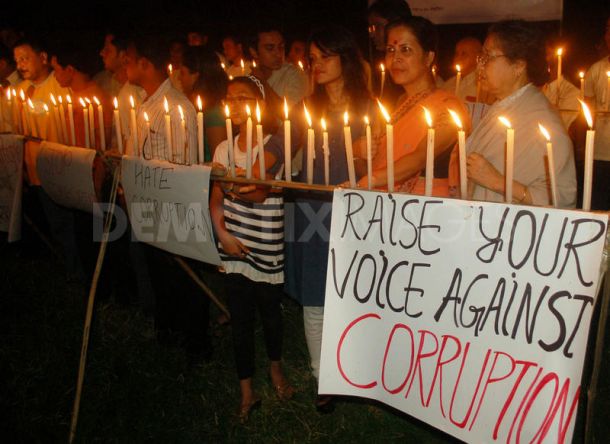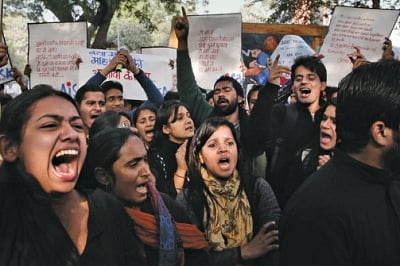By Aakriti Chowdhary
From Jawahar Lal Nehru to Bhagat Singh, history teaches us the radical feature of any society is its young and energetic. Major social movements around the world and also in India have been led, coordinated and supported by the youth. “India against Corruption” successfully gathered thousands of people generally young men to protest against this deep-rooted vice in our Indian Society. Mass-urban mobilization at its best, Young men and women broke barricades that were meant to protect the aged and elderly politicians. The young, since time immemorial have proven to be the generators of social change. America’s 76.4 million “baby boomers” born between 1946-1964 proved to be the wheels of change that fought for social, political and economics equality in USA. Active participation by the angry and the young after the Delhi gang rape case woke up the entire nation to the termites that are constantly feeding on this nation and brought break through changes by formation on the Justice Verma Committee
India has the youngest population and the oldest leaders. With 600 million under the age of 25 and at least 70% of the 1.2 billion population being under 40, the country’s median age is 25 years which is in sharp contrast to the average age of its cabinet members which 65 years. Rightly put by one, “The decision-makers in the Indian political class are still stuck in the mental framework of the 1970s, which is when they were blooded in politics.” Muzzafarnagar riot victims categorized as beggars, Section 377 defended, Politicizing Nido Tania’s death all defend the conventional stereotypical politics played by our very own “alleged” representatives.
A recent IMF Report suggests that India’s demographic dividend alone could contribute two percentage points to its annual G.D.P. growth for the next two decades, if the country adopts the right policies
With the second largest world’s graduates by 2020, as per OECD, India is shifting towards a knowledge driven world. The need is capitalizing on this very opportunity to work towards knowledge driven politics. Also, according to Centre for the Study of Developing Societies (CSDS), Education appeared to evoke greater interest, with collegians keener on following political issues than uneducated youngsters. Nearly 71% of urban youngsters showed interest in politics in 2011 as compared to 45% in 2009.But Interest in politics is insufficient without involvement. It’s time to stop procrastinating. It is time to stop blaming inexperience. Its time to move beyond heirs and family names. Its time to infuse new blood to prevent a diseased state. Its time to recognize the ability of the youth to quench the thirst of this dehydrated system.






































